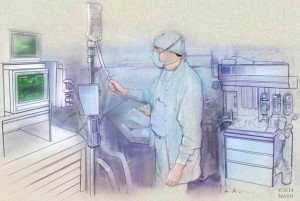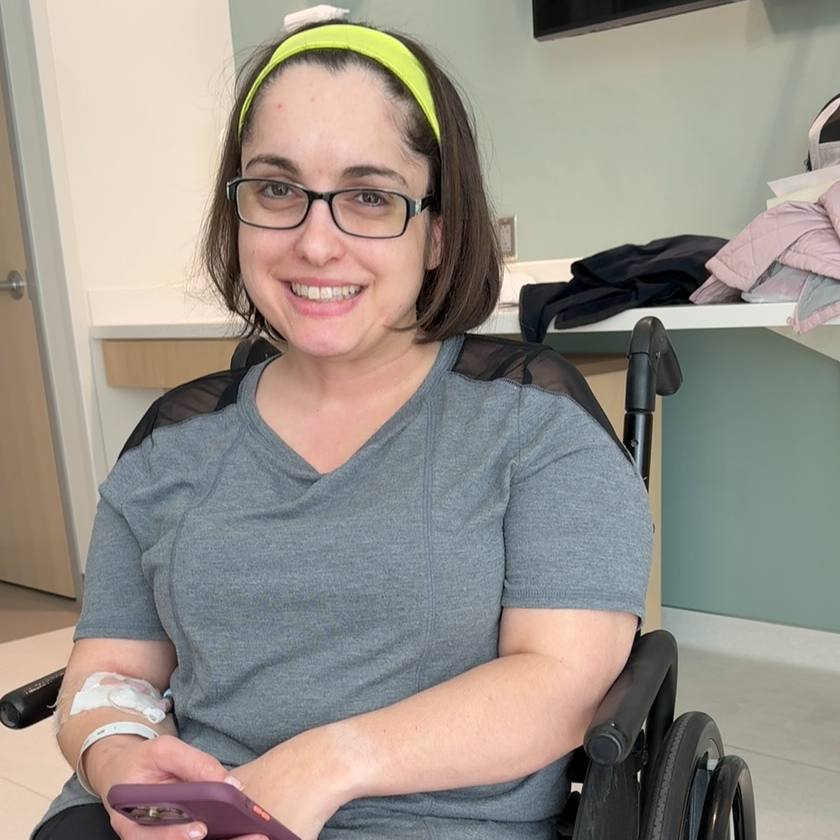-
Weekend Wellness: Anesthesia can be tailored to each person’s potential risk of postoperative nausea
DEAR MAYO CLINIC: I am scheduled to have surgery in the next month and am worried about the nausea and vomiting that I previously experienced after anesthesia. Is there anything that can be done to avoid post-surgery nausea?
ANSWER: It is normal to be concerned about postoperative nausea and vomiting. To address the concern, the anesthesia can be tailored to each person’s potential risk of these symptoms. Talk to your doctor about your concerns before surgery. Your health care team can take steps that may lessen the symptoms you previously experienced post-surgery.
Nausea and vomiting after surgery affect more than 30 percent of people. Postoperative nausea and vomiting also can lead to complications. These may include inhalation of stomach contents (aspiration), dehydration, imbalance of vital minerals (electrolytes) in blood and body fluids, and injury to the surgical site, such as torn stitches (sutures).
Certain factors may increase your risk of feeling sick when you awaken from surgery. These include being female, having a history of nausea and vomiting after surgery, having a history of motion sickness and being a nonsmoker. For reasons that are unclear, older adults tend to have less difficulty with postoperative nausea and vomiting.
Nausea and vomiting more typically occur after general anesthesia, which is used for surgical procedures that require you to be unconscious. The likelihood of postoperative nausea increases with longer procedures and time spent under general anesthesia. Some types of surgical procedures also increase the chance of feeling sick postoperatively. These include certain abdominal procedures, plastic surgery, eye muscle repair for crossed eyes (strabismus), surgery involving the ear and some forms of brain surgery.
The risk of postoperative nausea and vomiting is generally lower after surgical procedures that use local anesthesia to numb a small area, or a regional nerve block, which blocks sensation to an area of your body. These anesthetic techniques also reduce the need for morphine-like drugs for pain relief, which lowers the risk of nausea and vomiting.
Prior to having general anesthesia, your personal risk factors are taken into account along with the type of surgery being done. Several different anti-nausea (anti-emetic) drugs may be used on their own or in combination to help avoid postoperative nausea and vomiting. The drug dexamethasone, a corticosteroid, has anti-inflammatory properties resulting in an anti-emetic effect. Another medication, droperidol (Inapsine), blocks the effect of neurotransmitters in the central nervous system that can promote the onset of nausea and vomiting. Generally, one or both of these drugs are given intravenously during general anesthesia.
With increasing risk of postoperative nausea and vomiting, additional medications may be used. Ondansetron (Zofran) and granisetron (Kytril) are serotonin antagonists, which block serotonin from relaying impulses that would otherwise initiate vomiting. Another option is a scopolamine skin patch (Transderm Scop), which is sometimes used for motion sickness. Scopolamine patches have the advantage of lasting up to three days while applied to the skin, unlike the other medications, which typically last only four to six hours.
Along with standard drugs used to help avoid postoperative nausea and vomiting, nondrug therapies also may improve how you feel after surgery. One method involves stimulating an acupressure point on the wrist. Acupuncture may help manage nausea and vomiting. Mind-body therapies, including the use of guided imagery through meditation and deep breathing, may help in preparing for and recovering from surgery. In addition, aromatherapy may relieve postsurgical nausea. A recent study found that essential oil of ginger or a blend of essential oils — ginger, spearmint, peppermint and cardamom — significantly reduced nausea after surgery. The study found a significant reduction in anti-nausea drug requests after aromatherapy use.
Before you have surgery, talk to your surgeon and the anesthesiologist about your history of postoperative nausea and vomiting. They can then assess your risk and determine which therapies are appropriate for you. — John A. Dilger, M.D., Anesthesiology, Mayo Clinic, Rochester, Minn.







